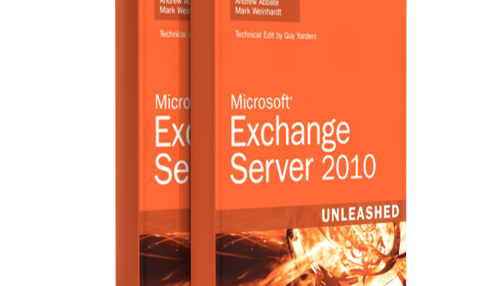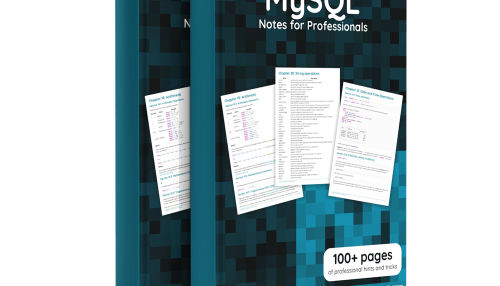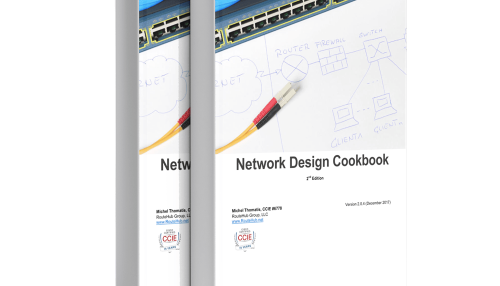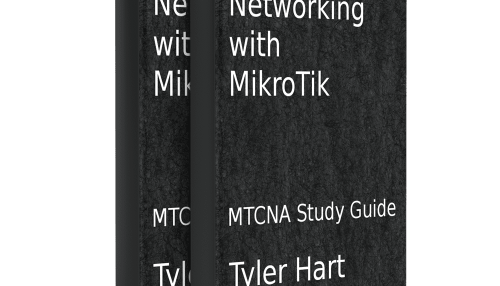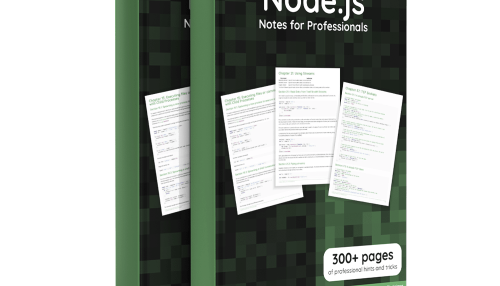MGT514.2 Security Strategic Planning, Policy, and Leadership Strategic Roadmap Development
فهرست مطالب کتاب Security Strategic Planning, Policy, and Leadership:
Define Current State
ïVision and Mission
Lab #1: Mission Statement
SWOT Analysis
Lab #2: SWOT Exercise
Develop the Plan
ïVisioning and Innovation
Security Framework
Security Roadmap
Gap Analysis
Lab #3: Roadmap Development
Business Case Development
Deliver the Program
Security Metrics Program
Marketing and Exec Communications
MGT514.3 Security Strategic Planning, Policy, and Leadership Security Policy Development and Assessment
فهرست مطالب کتاب Security Strategic Planning, Policy, and Leadership:
Purpose of Policy
Policy Pyramid
Develop Policy
Language of Policy
Lab #1: Positive and Negative Voicing
Policy Structure
Policy and Culture
Define Requirements
Development Examples
Lab #2: Vulnerability Management Policy
Manage Policy
Approve, Socialize, and Measure
Assess Policy and Procedure
SMART Approach
Policy Assessment
Lab #3: Cloud Computing Policy
MGT514.4 Security Strategic Planning, Policy, and Leadership Leadership & Management Competencies
فهرست مطالب کتاب Security Strategic Planning, Policy, and Leadership:
Why Choose Leadership
Understanding Leadership
Lab #1: Management and Leadership
Leadership Essentials
Building Trust
Servant Leadership
Effective Communications
Active Listening
Providing Feedback
Lab #2: Performance Review
Challenging Conversations
Build Effective Teams
Learning to Delegate
Lab #3: Delegation
Coaching, Mentoring, and Sponsorship
Leading Change
MGT514.5 Security Strategic Planning, Policy, and Leadership Strategic Planning Workshop
فهرست مطالب کتاب Security Strategic Planning, Policy, and Leadership:
Background
Case Study Method
Case Studies
iPremier Case (A)
iPremier Case (B)
iPremier Case (C)
PharmaCo Case (A)
PharmaCo Case (B)
PharmaCo Case (C)
HealthHound Case
Summary
Course Summary
Resources
Microsoft Forefront Threat Management Gateway (TMG) Administrator’s Companion
فهرست مطالب Microsoft Forefront Threat Management Gateway (TMG) Administrator’s Companion:
Introduction
Part I A New Era for the Microsoft Firewall
Chapter 1 What’s New in TMG
Chapter 2 What Are the Differences Between TMG and UAG?
Part II Planning for TMG
Chapter 3 System Requirements
Chapter 4 Analyzing Network Requirements
Chapter 5 Choosing the Right Network Topology
Chapter 6 Migrating to TMG
Chapter 7 Choosing a TMG Client Type
Part III Implementing a TMG Deployment
Chapter 8 Installing TMG
Chapter 9 Troubleshooting TMG Setup
Chapter 10 Exploring the TMG Console
Part IV TMG as Your Firewall
Chapter 11 Configuring TMG Networks
Chapter 12 Understanding Access Rules
Chapter 13 Configuring Load-Balancing Capabilities
Chapter 14 Network Inspection System
Part V TMG as Your Caching Proxy
Chapter 15 Web Proxy Auto Discovery for TMG
Chapter 16 Caching Concepts and Configuration
Part VI TMG Client Protection
Chapter 17 Malware Inspection
Chapter 18 URL Filtering
Chapter 19 Enhancing E-Mail Protection
Chapter 20 HTTP and HTTPS Inspection
Part VII TMG Publishing Scenarios
Chapter 21 Understanding Publishing Concepts
Chapter 22 Publishing Servers
Chapter 23 Publishing Microsoft Office SharePoint Server
Chapter 24 Publishing Exchange Server
Part VIII Remote Access
Chapter 25 Understanding Remote Access
Chapter 26 Implementing Dial-in Client VPN
Chapter 27 Implementing Site-to-Site VPN
Part IX Logging and Reporting
Chapter 28 Logging
Chapter 29 Enhanced NAT
Chapter 30 Scripting TMG
Part X Troubleshooting
Chapter 31 Mastering the Art of Troubleshooting
Chapter 32 Exploring HTTP Protocol
Chapter 33 Using Network Monitor 3 for Troubleshooting TMG
Microsoft® Exchange Server 2010 UNLEASHED
فهرست مطالب کتاب Microsoft® Exchange Server 2010 UNLEASHED:
Introduction
Part I: Microsoft Exchange Server 2010 Overview
1 Exchange Server 2010 Technology Primer
2 Planning, Prototyping, Migrating, and Deploying Exchange Server 2010
Part II: Planning and Designing an Exchange Server 2010 Environment
3 Understanding Core Exchange Server 2010 Design Plans
4 Architecting an Enterprise-Level Exchange Server Environment
5 Integrating Exchange Server 2010 in a Non-Windows Environment
6 Understanding Network Services and Active Directory Domain
Controller Placement for Exchange Server 2010
Part III: Implementing Exchange Server 2010 Services
7 Installing Exchange Server 2010
8 Implementing Edge Services for an Exchange Server
2010 Environment
9 Using Windows PowerShell in an Exchange Server 2010 Environment
Part IV: Securing an Exchange Server 2010 Environment
10 Client-Level Secured Messaging
11 Server and Transport-Level Security
12 Integrating Certificate-Based Public Key Infrastructure (PKI) in
Exchange Server 2010
13 Securing Exchange Server 2010 with ISA Server
14 Understanding Exchange Server Policy Enforcement Security
Part V: Migrations and Coexistence with Exchange Server 2010
15 Migrating from Active Directory 2000/2003 to Active Directory 2008
16 Transitioning from Exchange Server 2003/2007 to Exchange
Server 2010
17 Implementing Client Access and Hub Transport Servers
Part VI: Exchange Server 2010 Administration and Management
18 Administering an Exchange Server 2010 Environment
19 Exchange Server 2010 Management and Maintenance Practices
20 Using Operations Manager to Monitor Exchange Server 2010
21 Remote Administration of Exchange Server 2010 Servers
22 Documenting an Exchange Server 2010 Environment
Part VII: Unified Communications in an Exchange Server 2010 Environment
23 Designing and Implementing Mobility in Exchange Server 2010
24 Designing and Configuring Unified Messaging in Exchange
Server 2010
25 Collaborating Within an Exchange Server Environment Using
Microsoft Office SharePoint Server 2007
26 Integrating Office Communications Server 2007 in an Exchange
Server 2010 Environment
Part VIII: Client Access to Exchange Server 2010
27 Getting the Most Out of the Microsoft Outlook Client
28 Leveraging the Capabilities of the Outlook Web App (OWA) Client
29 Using Non-Windows Systems to Access Exchange Server 2010
30 Deploying the Client for Microsoft Exchange Server 2010
Part IX: Data Protection and Disaster Recovery of Exchange Server
31 Database Availability Group Replication in Exchange Server
32 Backing Up the Exchange Server 2010 Environment
33 Recovering from a Disaster in an Exchange Server
2010 Environment
Part X: Optimizing Exchange Server 2010 Environments
34 Optimizing an Exchange Server 2010 Environment
35 Designing and Optimizing Storage in an Exchange Server
2010 Environment
MySQL Notes For Professionals
فهرست مطالب کتاب MySQL Notes For Professionals:
Getting started with MySQL
Data Types
SELECT
Backticks
NULL
Limit and Offset
Creating databases
Using Variables
Comment MySQL
INSERT
DELETE
UPDATE
ORDER BY
Group By
Error 1055: ONLY_FULL_GROUP_BY: something is not in GROUP BY clause …
Joins
JOINS: Join 3 table with the same name of id.
UNION
Arithmetic
String operations
Date and Time Operations
Handling Time Zones
Regular Expressions
VIEW
Table Creation
ALTER TABLE
Drop Table
MySQL LOCK TABLE
Error codes
Stored routines (procedures and functions)
Indexes and Keys
Full-Text search
PREPARE Statements
JSON
Extract values from JSON type
MySQL Admin
TRIGGERS
Configuration and tuning
Events
ENUM
Install Mysql container with Docker-Compose
Character Sets and Collations
MyISAM Engine
Converting from MyISAM to InnoDB
Transaction
Log files
Clustering
Partitioning
Replication
Backup using mysqldump
mysqlimport
LOAD DATA INFILE
MySQL Unions
MySQL client
Temporary Tables
Customize PS1
Dealing with sparse or missing data
Connecting with UTF-8 Using Various Programming language.
Time with subsecond precision
One to Many
Server Information
SSL Connection Setup
Create New User
Security via GRANTs
Change Password
Recover and reset the default root password for MySQL 5.7+
Recover from lost root password
MySQL Performance Tips
Performance Tuning
Reserved Words
Network Design Cookbook – 2nd Edition
فهرست مطالب کتاب Network Design Cookbook – 2nd Edition:
Start Here
Introduction
Design Process
Design PODs
Example
Frameworks
Solutions
Services
Attributes
Network Security Auditing
فهرست مطالب کتاب Network Security Auditing:
Introduction
Chapter 1 The Principles of Auditing
Chapter 2 Information Security and the Law
Chapter 3 Information Security Governance, Frameworks, and Standards
Chapter 4 Auditing Tools and Techniques
Chapter 5 Auditing Cisco Security Solutions
Chapter 6 Policy, Compliance, and Management
Chapter 7 Infrastructure Security
Chapter 8 Perimeter Intrusion Prevention
Chapter 9 Access Control
Chapter 10 Secure Remote Access
Chapter 11 Endpoint Protection
Chapter 12 Unified Communications
Index
Networking with MikroTik MTCNA Study Guide
فهرست مطالب کتاب Networking with MikroTik MTCNA Study Guide:
1 MikroTik
2 RouterOS Software
3 Defaults
4 Accessing the Router
5 Configuring RouterOS
6 Managing Users
7 Interfaces
8 Addresses
9 Routing
10 VPNs and Tunnels
11 Queues
12 Firewalls
13 NAT
14 Wireless Networks
15 Wireless Security
16 Troubleshooting Tools
17 RouterOS Monitoring
18 The Dude
NodeJS Notes For Professionals
فهرست مطالب کتاب NodeJS Notes For Professionals:
Getting started with Node.js
npm
Web Apps With Express
Filesystem I/O
Exporting and Consuming Modules
Exporting and Importing Module in node.js
How modules are loaded
Cluster Module
Readline
json
Event Emitters
Autoreload on changes
Environment
Callback to Promise
Executing files or commands with Child Processes
Exception handling
Keep a node application constantly running
Uninstalling Node.js
nvm – Node Version Manager
http
Using Streams
Deploying Node.js applications in production
Securing Node.js applications
Mongoose Library
js
File upload
io communication
Mongodb integration
Handling POST request in Node.js
Simple REST based CRUD API
Template frameworks
js Architecture & Inner Workings
Debugging Node.js application
Node server without framework
JS with ES6
Interacting with Console
Cassandra Integration
Creating API’s with Node.js
Graceful Shutdown
Using IISNode to host Node.js Web Apps in IIS
CLI
NodeJS Frameworks
grunt
Using WebSocket’s with Node.JS
metalsmith
Parsing command line arguments
Client-server communication
js Design Fundamental
Connect to Mongodb
Performance challenges
Send Web Notification
Remote Debugging in Node.JS
Database (MongoDB with Mongoose)
Good coding style
Restful API Design: Best Practices
Deliver HTML or any other sort of file
TCP Sockets
Hack
Bluebird Promises
Async/Await
Koa Framework v2
Unit testing frameworks
ECMAScript 2015 (ES6) with Node.js
Routing AJAX requests with Express.JS
Sending a file stream to client
NodeJS with Redis
Using Browserfiy to resolve ‘required’ error with browsers
JS and MongoDB.
Passport integration
Dependency Injection
NodeJS Beginner Guide
Use Cases of Node.js
js
PostgreSQL integration
MySQL integration
MySQL Connection Pool
MSSQL Intergration
js with Oracle
Synchronous vs Asynchronous programming in nodejs
js Error Management
js v6 New Features and Improvement
Eventloop
Nodejs History
js
Asynchronous programming
js code for STDIN and STDOUT without using any library
MongoDB Integration for Node.js/Express.js
Lodash
csv parser in node js
Loopback – REST Based connector
Running node.js as a service
js with CORS
Getting started with Nodes profiling
js Performance
Yarn Package Manager
OAuth 2.0
Node JS Localization
Deploying Node.js application without downtime.
js (express.js) with angular.js Sample code
NodeJs Routing
Creating a Node.js Library that Supports Both Promises and Error-First Callbacks
Project Structure
Avoid callback hell
Arduino communication with nodeJs
N-API
Multithreading
Windows authentication under node.js
Require()
Route-Controller-Service structure for ExpressJS
Push notifications
Installing Node.js
NSX-T Data Center Administration Guide (VMware NSX-T Data Center 3.0)
فهرست مطالب کتاب NSX-T Data Center Administration Guide (VMware NSX-T Data Center 3.0):
1 NSX Manager
2 Tier-0 Gateways
3 Tier-1 Gateway
4 Segments
5 Host Switches
6 Virtual Private Network (VPN)
7 Network Address Translation (NAT)
8 Load Balancing
9 Distributed Load Balancer
10 Forwarding Policies
11 IP Address Management (IPAM)
12 Networking Settings
13 Security
14 Inventory
15 Multisite and Federation
16 System Monitoring
17 Network Monitoring
18 Authentication and Authorization
19 Certificates
20 Configuring NSX-T Data Center in Manager Mode
21 Backing Up and Restoring NSX Manager
22 Operations and Management 886
23 Using NSX Cloud 965






